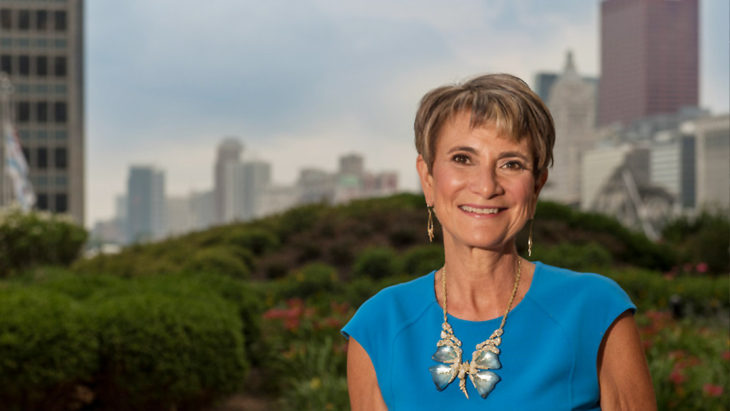
Life and Work with Susan Lucia Annunzio
Today we’d like to introduce you to Susan Lucia Annunzio.
Thanks for sharing your story with us Susan Lucia. So, let’s start at the beginning and we can move on from there.
I started my career as a therapist. One of my clients was the head of new recruits for the national accounting practice at Arthur Andersen. He asked me if I could help him reduce the turnover rate in his department. Although I had no similar experience, I realized that everything I had studied in graduate school — group dynamics, behavioral dynamics, interpersonal relationships — applied to corporations as well as individuals and families. At that time, few consultants were focusing on the “people side” of business. I began working with some colleagues, and in the 1980s we landed Amoco as a client. The company wanted its scientists to come up with more creative oil drilling solutions, but its process discouraged innovation. We developed a program that Amoco credited with increasing creativity and reducing conflict and turnover. Amoco subsequently bought the exclusive oil industry rights to the program. That project launched my career and resulted in my first book, Communicoding.
The principles of leadership and change management that I espoused had a proven effect on increasing the bottom line, which I wrote about in my second book, eLeadership. After it was published, I got a call from the dean of the University of Chicago Booth School of Business, who had read the book and invited me to teach a course in the MBA program. In addition to my consulting work and speaking engagements, I have been teaching high-demand courses at the university for 18 years.
My mission is to demonstrate to senior leaders that treating people with respect and dignity is morally, ethically and fiscally responsible. I knew from experience that companies where people are treated well make more money, but I wanted to prove that with hard data. With the help of a top-notch research firm, my team conducted the largest, most systematic global study on the factors that accelerate or inhibit profitable growth, which I wrote about in my third book, Contagious Success. We proved quantifiably that valuing people is the top predictor of high performance, around the world. I have had the opportunity to share this research at prestigious venues such as the World Economic Forum.
Has it been a smooth road?
Early in my career, a lot of women had decided that they needed to act like men to succeed. They sacrificed their femininity and behaved aggressively in the workplace. The fact that I didn’t do that probably was an obstacle in the short run, but it became an advantage.
I refused to hide my softer side. I was willing to ask for help and I thanked anyone who gave it. Instead of fighting with people, I encouraged them to explain their thinking. I was tough, and I never softened my point of view, but I softened the way I presented it. That became a differentiator for me, helping me in the long term to attract the type of clients I wanted to work with, and strengthening my relationship with male clients, who were comfortable confiding in me.
So, as you know, we’re impressed with Center for High Performance – tell our readers more, for example, what you’re most proud of and what sets you apart from others.
After running a large change management practice for a major consulting firm and serving as CEO of a subsidiary of a global company, I founded the Center for High Performance in 2006 to create a new model of consulting. I lead a virtual team of senior consultants who help business leaders achieve and sustain high performance throughout their organizations. What sets us apart is our data-driven approach. We deliver creative, high-quality work that makes an impact and delivers results. For example, using the findings from our proprietary global research, we create ADVANCES™ (the opposite of “retreats”), customized experiences for boards, executives and top leaders that simulate the factors stifling performance. We also offer customized executive education and coaching.
We have been told repeatedly after an assignment that we over-delivered and surpassed expectations. After working with us, our clients see measurable differences in team performance and the bottom line.
Who have you been inspired by?
Rosa Parks, Mother Teresa, Michele Obama, and Madeline Albright. All were — or are — strong-minded women who stood for something and held true to their beliefs, even in the face of resistance and intimidation.